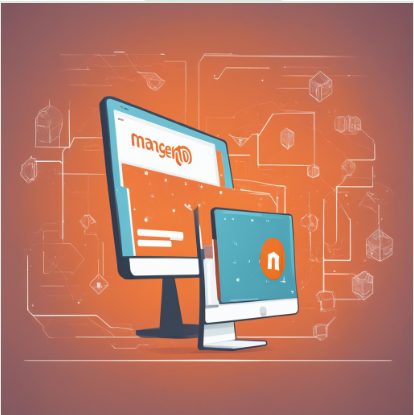
Magento, a robust and flexible e-commerce platform, has long been recognized for its ability to power dynamic online stores. While it’s widely popular in the B2C sector, Magento also excels in meeting the unique requirements of B2B e-commerce businesses.
We will explore how Magento can be tailored with the help of professional Magento development services to address the specific needs of B2B companies , highlighting essential features, integration capabilities, best practices, successful case studies, and future trends.
Differences Between B2C and B2B E-Commerce Requirements
Understanding the fundamental differences between B2C and B2B e-commerce is crucial for leveraging Magento effectively. Here are some key distinctions:
Customer Relationships: B2C focuses on individual consumers, often prioritizing a broad audience. In contrast, B2B deals with fewer, more significant transactions and long-term relationships with clients.
Order Volume and Frequency: B2C transactions typically involve smaller order sizes with higher frequency. B2B transactions, however, often involve bulk orders with lower frequency but higher value
Pricing Models: B2C pricing is straightforward and standardized, whereas B2B pricing can vary widely based on factors like volume, negotiation, and customer-specific discounts.
Decision-Making Process: B2C purchases are often impulsive, influenced by marketing and personal preferences. B2B purchases involve multiple decision-makers and a more complex, rational decision-making process.
Payment Term: B2C transactions usually involve immediate payment via credit cards or digital wallets. B2B transactions often use invoicing, credit terms, and purchase orders, requiring more sophisticated payment solutions.
Key Magento Features for B2B
Magento offers a suite of features tailored to meet the needs of B2B e-commerce. Here are some of the most important ones:
- Custom Pricing and Tiered Pricing: Magento allows for custom pricing models that can be tailored to individual customers or groups. This includes tiered pricing based on purchase volume, enabling businesses to offer discounts for bulk purchases.
- Bulk Ordering: Magento’s bulk ordering capabilities simplify the process for customers who need to purchase large quantities of products. Features like requisition lists, quick order forms, and the ability to upload CSV files for bulk orders enhance the user experience.
- Quote Management: Magento enables customers to request quotes directly from the product page. This feature is essential for B2B transactions where prices are often negotiated. Merchants can then respond to quote requests with custom pricing and terms.
- Corporate Accounts and Roles: Magento supports the creation of corporate accounts, allowing businesses to manage multiple users with different roles and permissions within a single account. This feature is particularly useful for companies with various departments or purchasing agents.
- Advanced Shipping Options: B2B transactions often involve complex shipping requirements. Magento’s advanced shipping features include the ability to manage multiple addresses, customized shipping methods, and freight options.
- Payment on Account: B2B customers frequently require payment on account, which allows them to pay invoices at a later date. Magento supports this payment method, providing flexibility for business customers.
Integrating Magento with ERP and CRM Systems
Seamless integration with Enterprise Resource Planning (ERP) and Customer Relationship Management (CRM) systems is critical for B2B e-commerce success. Here’s how Magento can be integrated with these systems:
- ERP Integration: Integrating Magento with ERP systems ensures real-time synchronization of inventory, orders, customer data, and financials. This integration enhances operational efficiency and reduces the risk of errors. Common ERP systems that integrate well with Magento include SAP, Oracle, and Microsoft Dynamics.
- Real-Time Data Sync: Ensure that inventory levels, order status, and customer information are always up to date.
- Automated Workflow: Automate processes such as order fulfillment, billing, and shipping, reducing manual intervention and errors.
- CRM Integration: Integrating Magento with CRM systems helps manage customer relationships more effectively by providing a complete view of customer interactions and sales history. Popular CRM systems that integrate with Magento include Salesforce, HubSpot, and Zoho CRM.
- Customer Insights: Access detailed customer profiles, purchase history, and communication logs to better understand customer needs and preferences.
- Personalized Marketing: Use CRM data to create targeted marketing campaigns and personalized customer experiences.
- Middleware Solutions: For businesses with complex integration needs, middleware solutions like MuleSoft, Dell Boomi, or Zapier can facilitate seamless data flow between Magento and other enterprise systems.
Magento, known for its flexibility and scalability, powers thousands of online stores worldwide. However, to maximize its potential, integrating it with a powerful ERP system is essential. An ERP centralizes various business processes such as inventory management, order processing, customer relationship management, and financial reporting, ensuring that your Magento store operates smoothly and efficiently. These are popular ERPs for Magento 2:
- SAP Business One
SAP Business One is a cost-effective ERP solution designed to manage small and midsize companies. It covers a range of functions, including accounting and financials, purchasing, inventory, sales, customer relationship management (CRM), and reporting and analytics.
- Microsoft Dynamics
Dynamics 365 is a suite of intelligent business applications designed to manage your entire business and enhance outcomes through predictive, AI-driven insights. You can select one, several, or all of these applications. Dynamics 365 is built to integrate seamlessly with each other and with your current systems, providing a holistic solution that unifies your entire business, enabling better customer connections.
Odoo is a comprehensive ERP solution for business management, offering advanced operational capabilities that provide complete control over your business through its well-defined and sophisticated features.
Best Practices for Managing Large Catalogs and Complex Product Configurations
Managing large product catalogs and complex configurations is a common challenge in B2B e-commerce. Here are some best practices to ensure efficiency and accuracy:
- Categorization and Taxonomy: Organize your product catalog with clear and logical categories. Use a taxonomy that reflects how your customers search for and interact with products. This improves navigation and search functionality.
- Product Attributes: Define detailed product attributes such as size, color, material, and specifications. These attributes should be consistent across the catalog to ensure accurate filtering and searching.
- Product Data Management (PDM): Utilize PDM tools to centralize and manage product data. This ensures consistency, accuracy, and ease of updates. Tools like Akeneo PIM or Salsify can integrate with Magento to enhance product data management.
- Configurable Products: For products with multiple variations (e.g., size, color), use Magento’s configurable products feature. This allows customers to select variations from a single product page, simplifying the purchasing process.
- Bulk Uploads and Updates: Use Magento’s bulk upload and update capabilities to manage large catalogs efficiently. Upload product data via CSV or XML files, and use automation tools to update product information regularly.
- Search and Filtering: Implement advanced search and filtering options to help customers quickly find the products they need. Use tools like Elasticsearch or Algolia to enhance search functionality with features like autocomplete, synonyms, and relevancy tuning.
Future Trends in B2B E-Commerce and Magento’s Role
The landscape of B2B e-commerce is continually evolving, driven by advancements in technology and changing customer expectations. Here are some future trends and how Magento is positioned to address them:
AI and Machine Learning:
- Trend: Artificial intelligence (AI) and machine learning (ML) are transforming B2B e-commerce by enabling personalized experiences, predictive analytics, and automated customer service.
- Magento’s Role: Magento’s AI and ML capabilities can be leveraged to provide personalized product recommendations, optimize pricing strategies, and enhance customer support through chatbots and virtual assistants.
- Mobile Commerce:
- Trend: Mobile commerce is gaining traction in B2B as business buyers increasingly use mobile devices for research and purchasing.
- Magento’s Role: Magento’s mobile-responsive themes and Progressive Web App (PWA) capabilities ensure that B2B e-commerce sites are optimized for mobile users, providing a seamless experience across all devices.
- Voice Commerce:
- Trend: Voice-activated devices are becoming more prevalent in B2B environments, enabling hands-free search and ordering.
- Magento’s Role: Magento can integrate with voice commerce technologies, allowing businesses to offer voice-enabled search and order functionalities.
- Blockchain Technology:
- Trend: Blockchain technology is being explored for its potential to enhance transparency, security, and efficiency in B2B transactions.
- Magento’s Role: Magento’s open-source nature and flexibility make it well-suited to integrate with blockchain solutions, enabling secure and transparent transactions.
- Sustainability and Ethical Practices:
- Trend: B2B buyers are increasingly prioritizing sustainability and ethical practices in their purchasing decisions.
- Magento’s Role: Magento can support businesses in highlighting their sustainability efforts, providing detailed product information, and enabling supply chain transparency.
Final thoughts
In conclusion, Magento stands out as a versatile and powerful platform for B2B e-commerce, offering a wide array of features, integrations, and customization options to meet the unique needs of businesses. By understanding the differences between B2C and B2B e-commerce, leveraging key Magento features such as custom pricing, bulk ordering, and quote management, and integrating with ERP and CRM systems, businesses can create seamless and efficient purchasing experiences for their customers.
Furthermore, implementing best practices for managing large catalogs and complex product configurations ensures accuracy and efficiency, while real-world case studies demonstrate the tangible benefits of Magento for B2B organizations. Looking ahead, Magento is well-positioned to embrace future trends in B2B e-commerce, including AI and machine learning, mobile commerce, voice commerce, blockchain technology, and sustainability initiatives
As B2B e-commerce continues to evolve, Magento remains at the forefront, empowering businesses to harness its power and drive growth in the digital marketplace. With its flexibility, scalability, and commitment to innovation, Magento continues to be the platform of choice for businesses seeking to thrive in the dynamic world of B2B commerce.
Source: Explore






